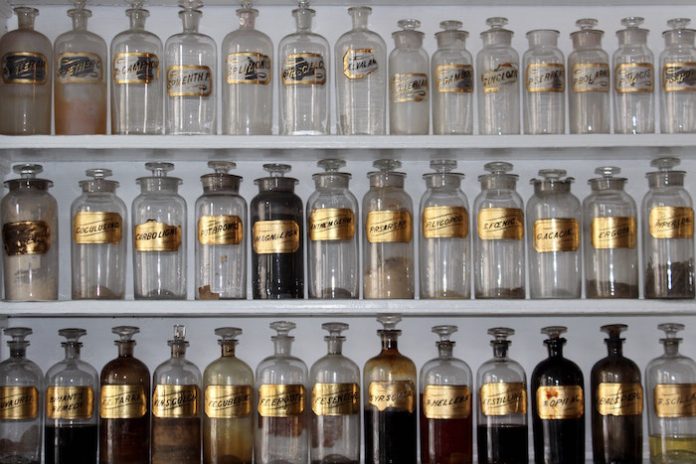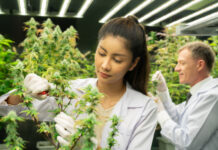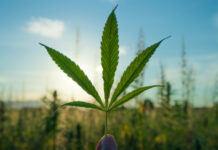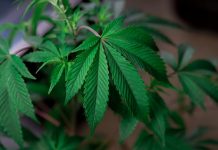Cannabidiol, or CBD as it’s more commonly known, is more popular than ever. You can even find it at some grocery stores! Industry leaders are continually pumping out new products and dedicated users swear by its healing potential.
Many CBD loyalists tout it as a remedy for anxiety, chronic pain, insomnia, and a host of other ailments. But how true are these claims? Is CBD just contemporary snake oil? Let’s delve into the truth about this emerging giant in the holistic health world.
What is CBD?
The cannabis plant is comprised of building blocks called phytocannabinoids. There are 113 currently-known phytocannabinoids. One of the better-known compounds typically associated with the plant is THC, or tetrahydrocannabinol. CBD is the second main phytocannabinoid. But unlike its counterpart, CBD does not carry any psychoactive effects. In other words, it won’t get the user high.
CBD is said to induce a calming effect on the system without any of the intoxicating elements of its cousin, THC. For consumers, it comes in a variety of product forms, from tinctures to gummies. Some manufacturers even offer CBD sodas!
Some of the claimed benefits of CBD include:
- Pain relief and anti-inflammatory properties
- Eases treatment-related symptoms in cancer patients
- Reduces symptoms of anxiety and depression
- Helpful for neurological disorders such as epilepsy and multiple sclerosis
- Supports heart health
- Encourages a full night of sleep
But is any of this true? The FDA still says that CBD can’t be claimed to treat or cure health conditions. In fact, it was only until the recent 2018 Farm Bill that CBD was legalized at the federal level.
Does it actually work? Or is it all hype?
Since its discovery in the 1940s, researchers have been hard at work observing the effects it may carry in the human body. As restrictions continue to relax, the cannabis plant and its various properties have been open for more thorough research.
As it turns out, all mammals have an endocannabinoid system (ECS) that produces its very own cannabinoids! This was a breakthrough revelation and a huge win for CBD supporters.
In essence, the ECS is charged with keeping the internal functions running in tip top shape. Our naturally-produced cannabinoids help maintain homeostasis. Proponents of CBD claim that it can assist (amplify) in prolonging that state of equilibrium in the body.
There’s still a lot of research to be done before we can conclusively say that CBD is as effective as claimed. For now, anecdotes of individual success stories bolster the industry. Though there is sufficient evidence to support Epidiolex, a CBD-derived medication, it is at least a valid treatment for childhood epilepsy.
Why is CBD so expensive?
With all of this knowledge and research, CBD is still super expensive on the consumer side.
As in any industry, supply and demand are at the root of pricing. Hemp was only grown in a select few states before legalization in 2018. This allowed for more farmers to try their hand at cultivating the crop. But it can be expensive and difficult to grow.
Although growing hemp can be a high-risk endeavor, it doesn’t necessarily justify some of the steep prices you’ll see. Successful growers can farm 41,000 grams of CBD per acre. That means a single acre could yield roughly 41,000 bottles of a 1000-milligram tincture bottle.
The process to produce CBD products might be expensive, but that doesn’t necessarily mean it should be expensive to the buyer. The market is oversaturated with CBD right now. There are naturally going to be companies that take advantage of the demand. But only a select few companies offer a fair price for their products.
So is CBD worth your while?
CBD isn’t going anywhere. As new research emerges and success stories continue to stream in, more and more people will reach for this plant-powered product. Investors would be wise to keep a close eye on this industry and its potential.
Those looking to benefit from CBD don’t have much to lose. It has been found to be fairly safe to use even in high doses. Mild side effects include potential nausea, fatigue, and irritability. If a consumer is concerned about taking CBD, they can ask for guidance from their doctor.
Right now, the CBD industry needs more hands on deck for selling CBD products at much lower prices than the current standard. Without lower prices, the industry will crumble beneath our nation’s feet.
At the end of the day, CBD can’t be categorically written off as just another snake oil. There are some proven benefits for patients with seizures and researchers are still learning more about other potential therapeutic benefits. As time goes on, we’ll see what other proven benefits this cannabinoid has to offer. For now, we’re left to decide for ourselves whether or not we’ll jump on the CBD bandwagon.
Find a Home-Based Business to Start-Up >>> Hundreds of Business Listings.

















































